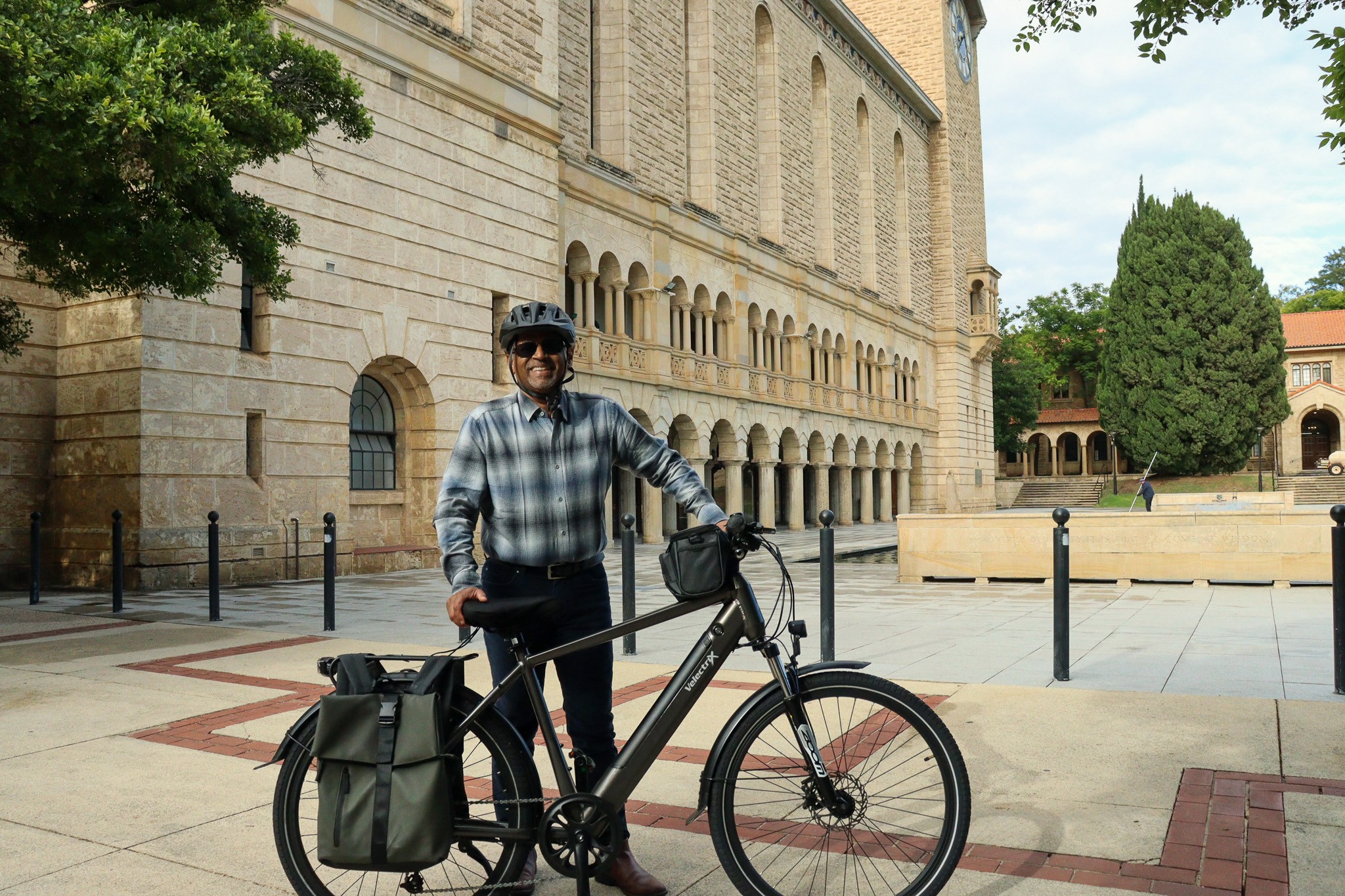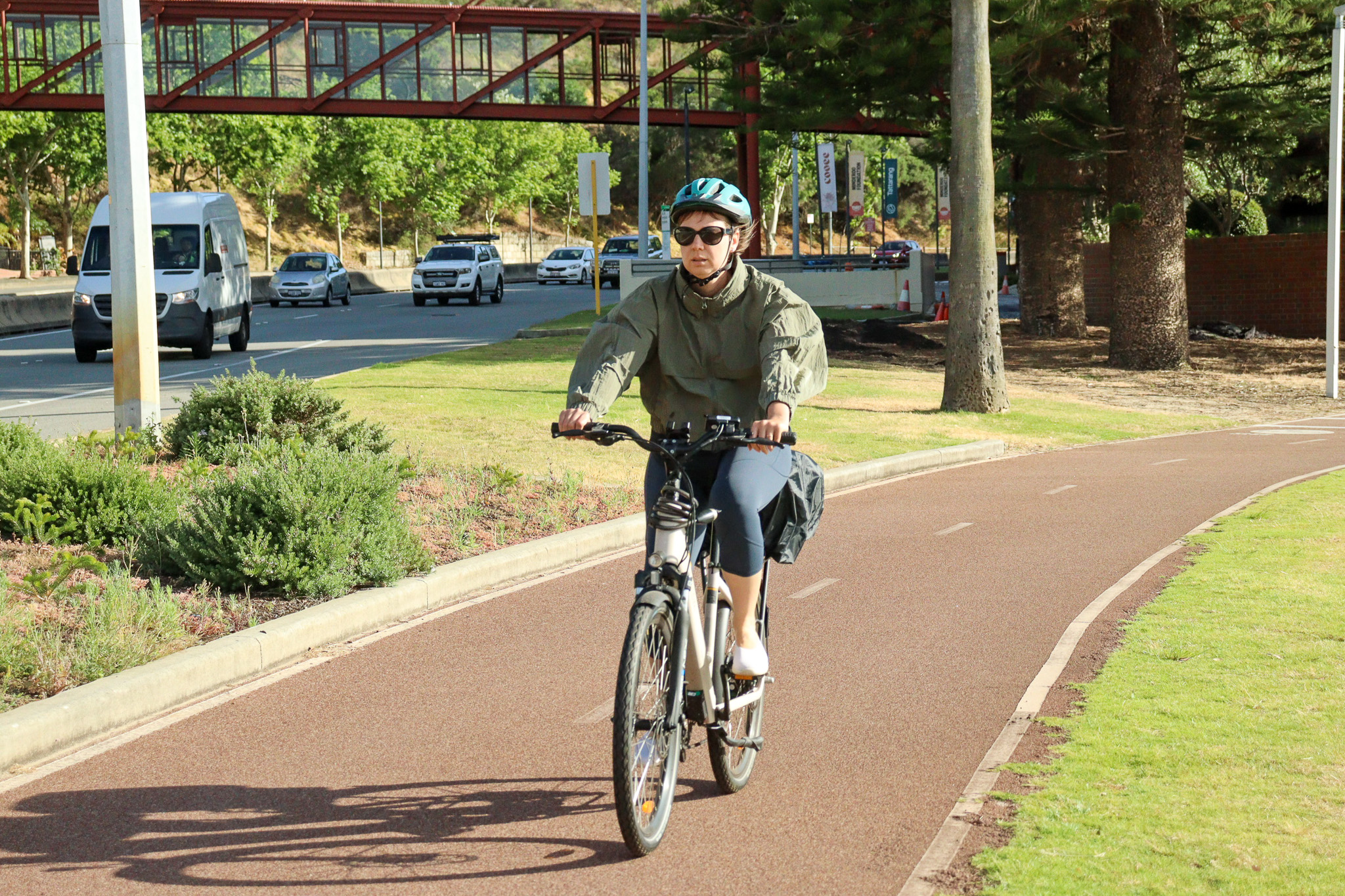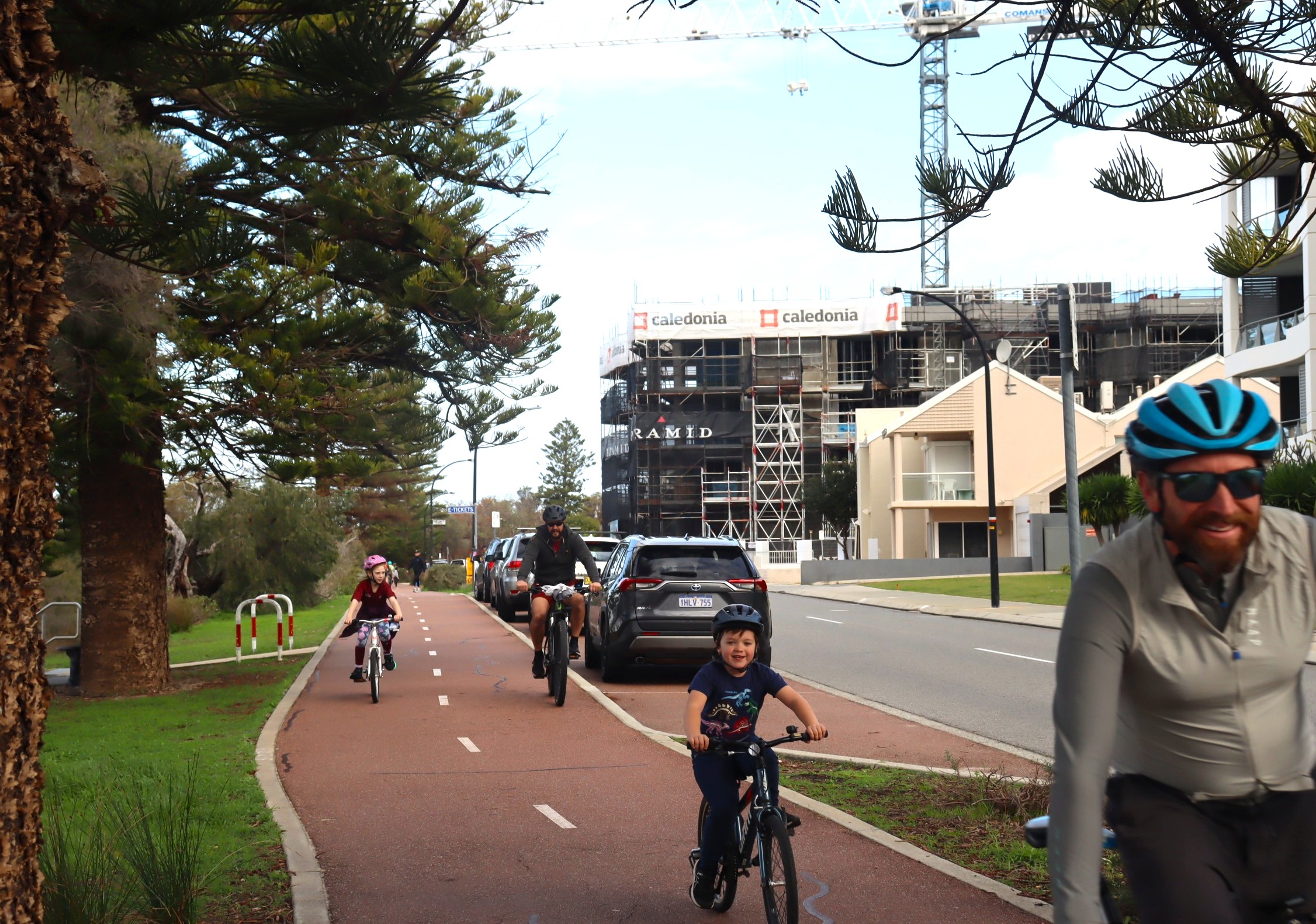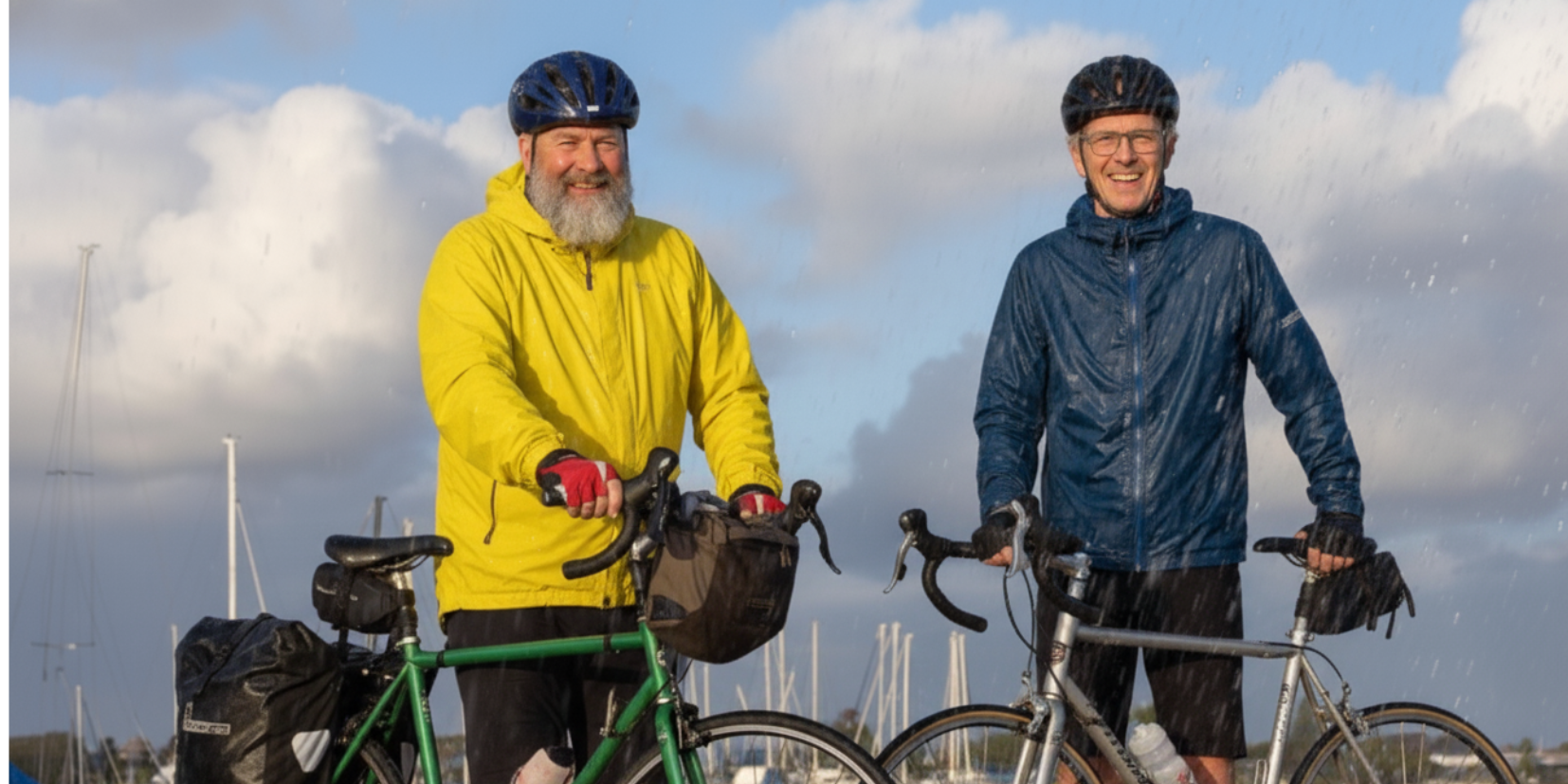For someone who took up riding relatively late in life, Fran Watson went all in.
She became a world champion on road and track 17 times over, a racing commissaire, and a powerful advocate for women’s riding in our State and beyond.
“Thing was there just weren’t a lot of women in my age group in those days so we had to go away to the eastern states or somewhere else to actually get competition,” the 2003 WA Sportswoman of the Year Award nominee said. “But look I’ve not got any talent. It’s just tenacity and showing up!”
Her 2-wheeled odyssey began in 1990 while in her late 40s after a long period dealing with a crippling chronic fatigue syndrome diagnosis while living in Harvey she thinks might have been linked to the pesky local estuary mosquito population.
“The specialist said, ‘you’re going to have to exercise’ and I said, ‘I don’t exercise’ and he said, ‘well you’re going to have to’,” the 83-year-old told WestCycle.
“So I got on my little pink lady’s bike that I used to take my daughter to school on, and I rode around the bridges here a couple of times with tears coming down my face, and I thought this is bloody silly; this won’t do me any good. The reality is these chronic fatigue things come in, and then they magically just go away. I think that was 1990 and I was enjoying riding, and I bought a road bike, and I used to ride on my own….”
Soon enough Watson, who worked much of her life as a general nurse and then a specialist nurse in an acute psychiatric unit, was regularly smashing out 300+ kilometres a week on one of what eventually became nine bikes that resided in various rooms in her Mount Pleasant home.
“I was riding six days a week but I could be lazy – I’d get the train to Mandurah and ride back to Perth with a south-westerly tailwind! And then I decided to go to the National Masters Games in Canberra in 1997…”
…the rest is quite outstanding cycling history.
Golden years: “I’ve not got any talent. It’s just tenacity and showing up!”
Watson took a medal in that first participation at the biennial National Masters Games in what would become the first of many medals at National and World Masters events across road races, time trials and criteriums – as well as various track disciplines.
“That was my first medal, in the 50 to 54 age group,” Watson reflected. “A time trial. I didn’t have any idea what I was doing really. But I soon did.”
With her chronic fatigue largely in recession, replaced by evermore power on the pedals, Watson found herself at the pointy end of most races she entered, winning a bunch of them! Her medal-laden glory wall is proof of that.
“Racing just became another chapter in my life – getting into all that stuff. It was some sort of life achievement – achieving those things. We’d go to World Championships, and we’d see these world champions, it was great just being around that. It was a good community! And riding around Perth – I always knew everybody! Riding has just been a good chapter of my life. It’s been good for my health as well.”
In addition to her racing life that saw her ride and race in more than 20 countries with longtime Masters racing comrade Dennis Robinson, Watson became an influential administrator, track cycling commissaire, referee and advocate for women’s cycling.
“I knew all the UCI [cycling’s international governing body] presidents,” she recalled. “They’d duck for cover when they saw me coming, because I’d have something to say. There were so few women in cycling then. I wrote to the UCI many times about encouraging women and not discriminating against them, and all the rest of it.”
West Coast Masters: “I had to ride against the men and they gave you no inch…”
In Perth, Watson rode for the Over-55s Cycling Club for more than 20 years. She was the first women to complete the Club’s 200km Achievement Ride from Perth to Mandurah and back.
She also raced with ATTA (Australian Time Trials Association) and the Perth-based West Coast Masters over-30s cycling club from 1997 – one of very few women doing so at the time. Through her involvement with the club including as a referee, she helped shape the club’s direction and inclusive approach that meant an ongoing commitment to gender-neutral, ability-driven racing.
“I had to ride against the men and they gave you no inch. I was the only woman in the club pretty much, being thrashed for years. It’s so great to see the progression – to see the amount of women riding now.”
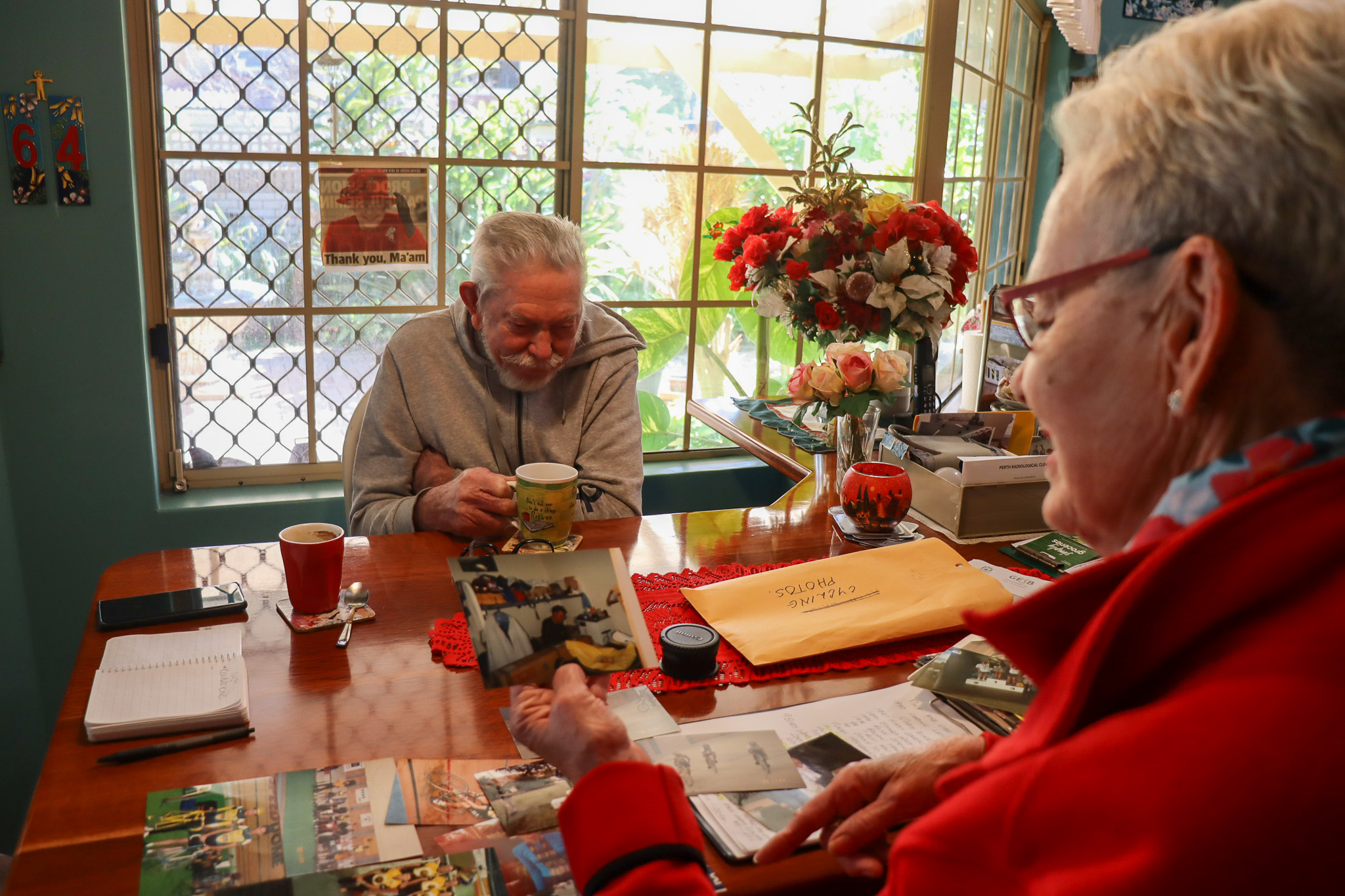
On the road: Managing the spectre of chronic fatigue
Watson said her bouts with chronic fatigue did return in the intervening years although she has not had a recurrence for several years.
“It’s only in the last probably three, four years that I’ve stopped having the flare ups. And it’s not just fatigue, it’s your joints as well. They get really sore. It always seemed worse in the change of season. But there’s nothing you can do about it. All of a sudden you just wake up one day and it’s gone.”
“There were times when I’d have that fatigue two weeks before an event where I couldn’t ride or couldn’t train and I’d think, I’ve booked to go away. I’ll have to go and somehow I’ve gone away and had success at the competitions. I think I got quite lucky with it in that sense.”
Chaperoning a golden generation
After tasting so much cycling success herself, Watson was on hand as a commissaire at WA’s Midvale velodrome to witness and guide the emergence of a golden generation of WA riders.
“I knew the kids well that came through the track when I was commissairing – Michael Storer, Jai Hindley, Luke Durbridge, Cameron and Travis Meyer. We knew all those kids from the track. That’s why they’re such good riders. They really learn how to pedal properly on their fixed wheel bikes.”
Helluva ride
Heart complications mean Watson rarely rides these days – “I’ve got a heart full of stents and all the rest of it” – although she still racks up 10,000 walking steps per day. She will never stop being an advocate for riding and celebrates the State’s bike path network that enables it.
“Compared to other places like Sydney, we have got very good cycle paths in Perth,” she said. “To be able to ride from Mandurah to Muchea on the principal path is a wonderful thing. They just need more connecting paths around the place. I just like seeing people out there on their bikes. It’s a great sport. It’s been a helluva ride.”

